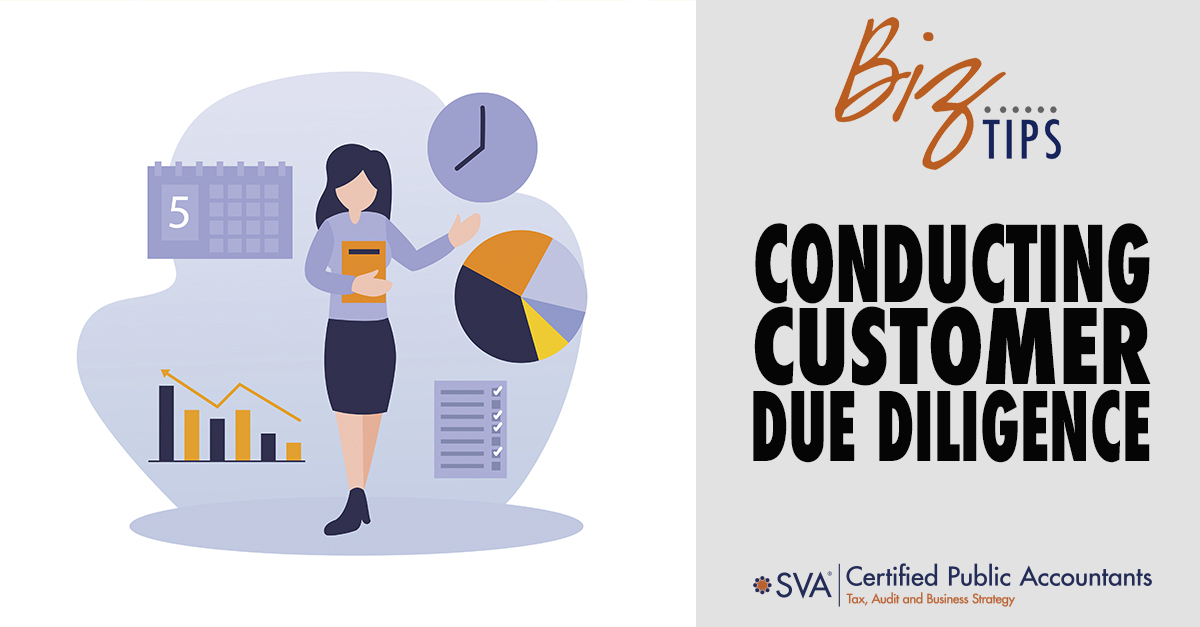Analyzing a Target’s Customer Base – A Vital Step in the Due Diligence Process
Revenue and value are of paramount importance to successful business owners as well as potential acquirers of companies. However, without a strong customer base, target companies would be incapable of generating revenue or driving value as desired.
Fortunately, by analyzing the target’s customer base, potential buyers can account for post-transaction risks or customer exposure in the due diligence process. This allows them to evaluate areas of concern and determine whether or not it is a deal-breaker.
During customer due diligence, six areas can be reviewed, analyzed, and discussed with the owners and management of a target company. These six areas are summarized below.
1. Customer Revenue/Purchasing Trends and Customer Concentrations
It is important for a buyer to understand the purchasing patterns of the target company’s customer base. To do so, consider asking the following questions about the target’s top ten customers:
- What led to a significant increase or decrease in customer purchases year over year?
- Did the company experience any significant one-time purchases from a customer or multiple customers?
- What does the target company expect in terms of customer purchasing trends over the next 12 to 24 months?
- What products are being sold to the customer?
- Does the target company currently have a customer concentration, both individually and/or for the top five to ten customers?
The answers to these questions can provide meaningful insight into revenue stability, customer growth opportunities, and risk of post-transaction customer attrition of the business.
2. Contracts
Another vital piece to the customer puzzle is determining whether the target company has contracts in place with their current top customers. The following questions are frequently addressed during the course of customer due diligence:
- What customers currently have contracts in place?
- How long are these contracts in place?
- Do the contracts have automatic renewals or automatic expirations?
- Is the target company already in negotiations with customers regarding their respective renewals?
- Do the contracts include minimum purchase commitments?
- What is the pricing on these contracts and is it similar to others?
- Does the pricing change based on the amount of annual purchases?
Contract-based revenue can have a significant impact on the likelihood and reliability of revenue results post-transaction, so it is important for buyers to gain an understanding of the target company's major customer contracts.
3. Margins
Whether it is pricing, product/sales mix, or other key factors, it is essential to review margins by the customer to uncover variances and fluctuations in gross margin by the customer each year. Once again, a review of the target's top customers can provide insight. Consider addressing the following questions:
- Which customers result in the top gross margins and why?
- Are the revenue trends for the top gross margin customers increasing or decreasing over the periods analyzed?
- What will these margins look like in the next year?
- How can the buyer improve margins with lower margin customers and maintain or increase higher-margin customers?
- Does the company budget or target certain gross margins with customers?
- If the margin is too low, will the target company not sell products to certain customers?
The answers to these questions can inform the buyer of opportunities to pursue post-transaction such as efforts to adjust product mix or pricing changes.
4. Lost Customers
Analyzing the target company’s lost customers, especially top customers, is vital to ensuring the value of the customer base being acquired. Ideally, this analysis will uncover consistent customer performance (i.e., “stickiness”). However, asking tough questions about customer turnover can certainly help the buyer assess risks and opportunities in the transaction. Consider:
- Why did the target company lose a top customer?
- Did they go to a competitor?
- Was it due to pricing?
- Was it due to the quality of the products or work performed?
- Does the buyer have the ability to gain the customer back in the future?
Once again, the answers to these questions will assist the buyer in prioritizing post-transaction revenue-related activities.
5. Customer Acquisition
Oftentimes, acquisitions are the result of a buyer’s desire to acquire certain key customers. As such, sellers and buyers have to ask themselves, at what price am I willing to sell or pay for the customers?
If the buyer is willing to pay a premium, that premium should be evaluated against the potential risk of customer attrition post-transaction. On the other hand, the seller should analyze their ability to demand a premium for these customers.
6. Customer Relationships
It is common for employees of a company to maintain relationships with key customers. Whether that is an owner, sales representative, or manager, customers tend to be loyal to that specific company representative at the target business.
A buyer must determine whether or not that person will remain with the company post-transaction and what can be done to entice that person to stay on board to maintain the customer relationship. If not, what is the likelihood the customer will remain with the new company?
If the buyer is unable to retain the key employee, they must determine how to backfill that lost customer, revenue, and value. Customer relationships are central to most business transactions and the ability to maintain, or even enhance, those relationships post-transaction can unlock significant value embedded in the deal.
If you seek to acquire a business or are exploring the sale of your business, it is important to analyze the company’s customer base and determine how that customer base impacts revenue, gross margin, and EBITDA.
You’ll want to ensure that the financial results that support the value you are acquiring or selling are confirmed and vetted so that you can protect and enhance that value post-close.

© 2021 CPAContentPlus

